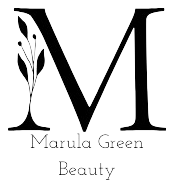When it comes to natural skincare, two standout ingredients are always in the spotlight — Vitamin C and Green Tea.
Both are powerful antioxidants. Both are supported by science. And both deliver real results for concerns like wrinkles, dark spots, oiliness, and acne.
But which one is right for you?
At Marula Green Beauty, we believe in simplifying skincare with plant-powered solutions. In this post, you’ll discover the key differences between Vitamin C and Green Tea for the skin—so you can make the right choice for your routine.
Vitamin C for Skin
Vitamin C is a brightening, anti-aging, and barrier-supporting ingredient. It’s loved for its ability to make skin look smoother, firmer, and more even-toned.
Benefits for Anti-Aging:
-
Neutralizes free radicals from sun and pollution
-
Boosts collagen production for firmer, younger-looking skin
-
Fades dark spots and uneven skin tone
-
Supports moisture retention and skin glow
Benefits for Acne:
-
Reduces inflammation in active breakouts
-
Fades post-acne marks (PIH) over time
-
Helps repair acne scars by stimulating collagen
-
Some forms like Sodium Ascorbyl Phosphate (SAP) may reduce acne-causing bacteria and balance oil
Best for:
Dull skin, uneven tone, early aging signs, and fading acne marks.
Green Tea (EGCG) for Skin
Green tea extract, especially EGCG, is a calming, oil-regulating, and inflammation-reducing hero — perfect for acne-prone and sensitive skin.
Benefits for Anti-Aging:
-
Fights free radicals and environmental damage
-
Works well with Vitamin C and Vitamin E for stronger antioxidant defense
Benefits for Acne:
-
Reduces oil production (great for oily skin types)
-
Calms irritated, red, or inflamed breakouts
-
Has antibacterial properties that help fight acne
-
Clinical studies show oral EGCG can reduce inflammatory acne lesions on areas like the nose, chin, and jaw
Best for:
Oily, acne-prone, and sensitive skin types that need calming care.
Which Is Better? Vitamin C or Green Tea?
It depends on your skin’s needs:
For Anti-Aging:
-
Vitamin C is more powerful on its own—brightens, firms, and protects.
For Acne:
-
Green Tea is excellent for calming breakouts and reducing oil
-
Vitamin C (SAP or MAP forms) helps with scarring and discoloration
Pro Tip: You don’t have to choose one!
-
Use Vitamin C in the morning for antioxidant protection
-
Use Green Tea in the evening for oil control and calming
Usage Tips for Both
-
Start slow with both ingredients to prevent irritation
-
For acne-prone skin, choose SAP or MAP forms of Vitamin C
-
Always wear sunscreen daily, as both ingredients can increase sun sensitivity
-
If you’re considering oral green tea extract, consult your doctor first
Frequently Asked Questions
Can I use Vitamin C and Green Tea together?
Yes! They work even better when used together. Just use one in the morning and the other in the evening.
Is Green Tea better than Vitamin C for acne?
Green Tea is better for calming oil and redness. Vitamin C helps more with post-acne marks and scars.
What kind of Vitamin C is best for acne-prone skin?
Look for gentle types like Sodium Ascorbyl Phosphate (SAP) or Magnesium Ascorbyl Phosphate (MAP).
At Marula Green Beauty…
We believe in effective, natural skincare powered by antioxidants like Vitamin C and Green Tea.
Stay tuned for our Face Trio Launch, made with science-backed botanicals and rich textures your skin will love.
Until then, explore our Essence of Harmony Body Oil—a calming, nutrient-rich blend designed to protect, nourish, and balance your skin barrier.
🛍️ Visit marulagreenbeauty.com for more.

 Complexion Tonic Serum + Fade Face Oil
Complexion Tonic Serum + Fade Face Oil